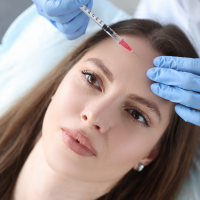Botulinum toxin, widely recognized for its aesthetic applications, is proving to be more than an ally in the therapeutic world. With over two decades of proven safety, this versatile product has recently gained notoriety for its potential to relieve depressive symptoms when injected into the forehead muscles.
Psychiatry is undergoing a notable paradigm shift, moving away from the traditional norepinephrine- and serotonin-focused view of depression. Instead, factors such as inflammation, methylation, epigenetics and neuroplasticity are being explored as key elements in the development of the disease. In this context, innovative treatments such as ketamine, magnets, psilocin, anti-inflammatories and surprisingly, botulinum toxin, are being considered.
In 2006, dermatologist Eric Finzi, MD, PhD, shared revealing results from a study of 10 depressed patients. These patients received a single course of botulinum toxin A (BTA) injections into the forehead. Two months later, 9 of the 10 patients no longer showed signs of depression.
The main area of application is in the area between the eyebrows, commonly treated for expression lines. Although botulinum toxin is not positioned as the only therapy for depression, preliminary evidence suggests that it could be complementary to conventional treatments.
It is important to note that botulinum toxin does not replace existing psychiatric medications. Ongoing research is currently being conducted, and patients are advised not to discontinue their current medications when incorporating botulinum toxin as a supplement.
If larger studies support the findings of previous research, botulinum toxin could emerge as a promising therapeutic agent in the battle against depression.
Conclusion: Research on the application of botulinum toxin in the treatment of depression is generating excitement and opening new perspectives in the approach to this disease. Although not emerging as a single solution, combining botulinum toxin with conventional treatments could represent a significant advance in improving the quality of life of those struggling with depression.


